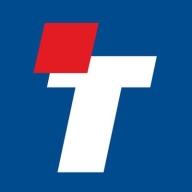

Oracle Database In-Memory and Tibero are robust contenders in database management solutions, excelling in different areas. Oracle often has a competitive edge due to its deep cloud integration and extensive enterprise application support, while Tibero offers significant cost advantages and ease of migration.
Features: Oracle Database In-Memory delivers real-time analytics and scalability, optimized by its cloud integration, making it ideal for handling complex queries efficiently. Its multitenant capabilities ensure excellent flexibility for database consolidation, and Oracle Real Application Clusters enhance workload distribution. Tibero's compatibility with Oracle SQL eases migration, supports high availability clustering, and relies on Hyper-Threading architecture to offer impressive speed and efficiency.
Room for Improvement: Oracle could benefit from reducing its complexity and cost, as its high initial investments deter smaller enterprises. The environment might also be overwhelming for users unfamiliar with Oracle's vast ecosystem. Conversely, Tibero could improve its enterprise application support and expand its features, matching Oracle's depth while maintaining cost-effectiveness. Additionally, its customer support could be enhanced to match Oracle's renowned service network.
Ease of Deployment and Customer Service: Oracle Database In-Memory offers diverse deployment options from cloud to on-premises with an extensive support framework praised for handling complex issues effectively. Tibero, while simpler to deploy with a reduced learning curve, benefits from reliable documentation and responsive support, facilitating easier adoption for new users.
Pricing and ROI: Oracle Database In-Memory necessitates a higher initial setup cost, reflecting its extensive functionality and integration capabilities, offering significant ROI for those entrenched in Oracle's ecosystem. In contrast, Tibero presents a more affordable alternative with swift ROI due to its competitive performance metrics, positioning it attractively for organizations prioritizing budget constraints.
| Product | Market Share (%) |
|---|---|
| Oracle Database In-Memory | 2.0% |
| Tibero | 2.1% |
| Other | 95.9% |

| Company Size | Count |
|---|---|
| Small Business | 6 |
| Midsize Enterprise | 4 |
| Large Enterprise | 23 |
Oracle Database In-Memory transparently accelerates analytics by orders of magnitude while simultaneously speeding up mixed-workload OLTP. With Oracle Database In-Memory, users get immediate answers to business questions that previously took hours.
Oracle Database In-Memory delivers leading-edge in-memory performance without the need to restrict functionality, or accept compromises, complexity and risk. Deploying Oracle Database In-Memory with any existing Oracle Database compatible application is as easy as flipping a switch - no application changes are required. Oracle Database In-Memory is fully integrated with the Oracle Database’s renowned scale-up, scale-out, storage tiering, availability, and security technologies making it the most industrialstrength offering on the market.
The ability to easily perform real-time data analysis together with real-time transaction processing on all existing applications enables organizations to transform into Real-Time Enterprises that quickly make data-driven decisions, respond instantly to customer demands, and continuously optimize all key processes.
For more information on Oracle Database In-Memory, visit Oracle.com
Tibero by TmaxSoft bridges the gap between legacy relational databases and the new paradigm of running workloads in virtualized data centers and the Cloud, allowing enterprises to fully leverage their investment by embracing a simple, true utilization licensing model.
We monitor all Relational Databases Tools reviews to prevent fraudulent reviews and keep review quality high. We do not post reviews by company employees or direct competitors. We validate each review for authenticity via cross-reference with LinkedIn, and personal follow-up with the reviewer when necessary.